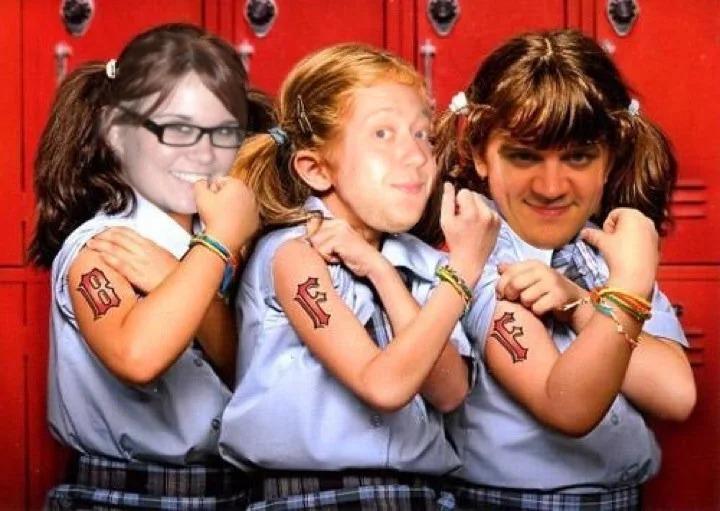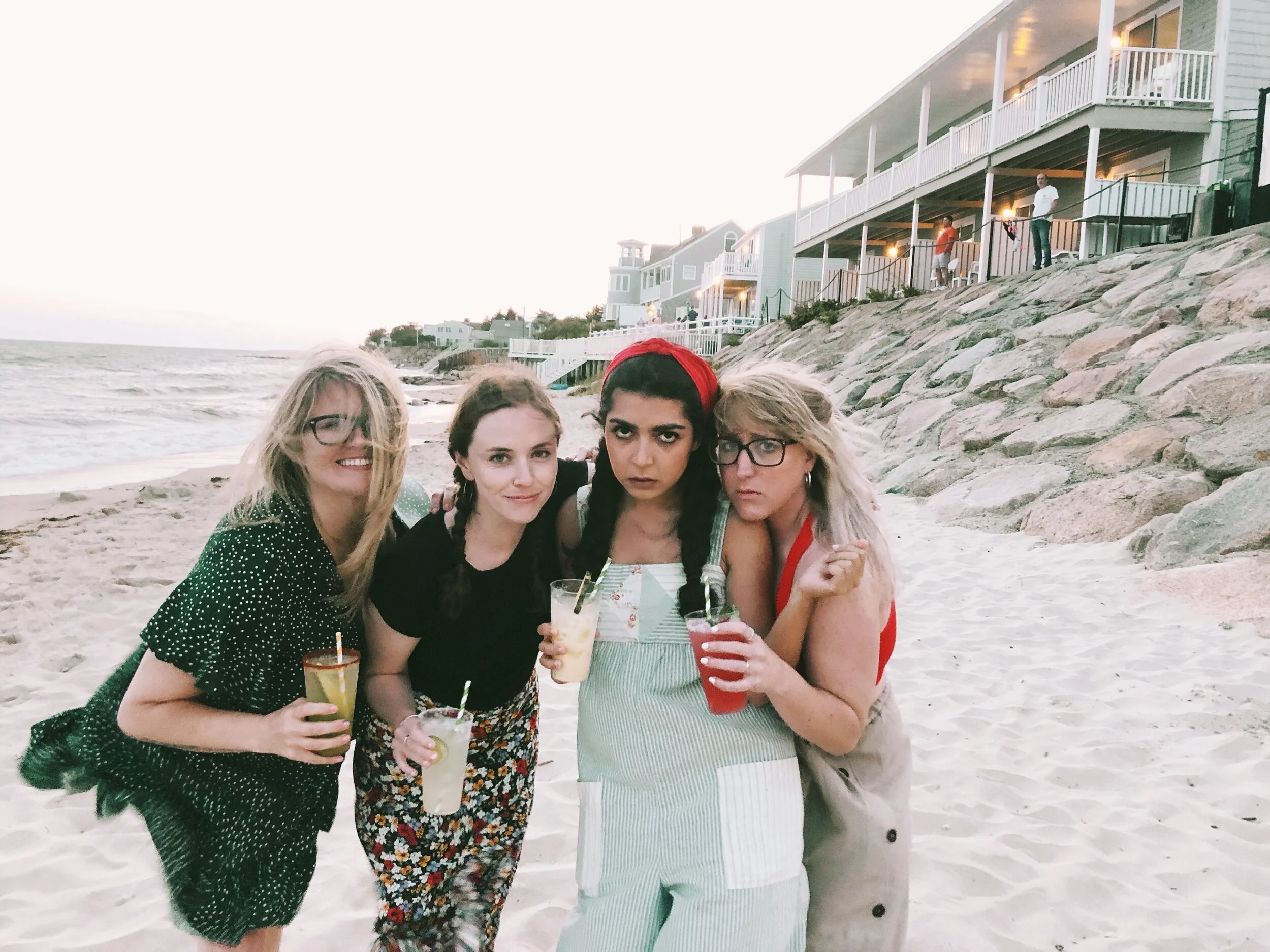One of the Guys
I recently listened to the Amy Poehler episode of Armchair Expert and she spoke about how she had to learn to fit in with men at an early age because of comedy. It was always cool to be “one of the guys” because it meant you BELONGED!
I was one of the guys throughout my entire twenties. Performing comedy meant that you were going to be one of a handful of women in the room, so you had to get comfortable with that. I didn’t hang out with a lot of guys in high school, but the transition to a mostly male environment didn’t phase me. I even believed that I connected easier with men. It helped that I wasn’t attractive enough for them to like me, and I could make and take a joke!
Until I couldn’t. During one show, in particular, I wasn’t cast in many sketches and was barely in the first act. I felt excluded and thought it was unfair, so I said something. The director complained about me to the rest of the cast, and the one other female cast member told me. That’s just the way it was at that time. It often felt like we were Rugrats All Growed Up and running a professional theater. But that’s where everything shifted for me.
I began to feel “good enough” to be cast in a show, but not “good enough” to be cast in a sketch. It felt like I was constantly trying to prove myself and had to re-audition every single day. I felt I was at a disadvantage because I was female and had to work harder to win the audience over. The directors would mostly have the men host the show or the interview segments. There were certain slots you had to earn and they hardly ever went to women.
In sketches, I felt like I was only ever cast as unattractive side characters like mothers and co-workers. I don’t actually believe that was personal, but my mindset at the time was not in a healthy place. I learned quickly that if I wanted to be cast in sketches, I had to write them myself. Mostly because the cast ratio was typically four men and two women, so very few roles were available. Of course, I wanted to work with more women, but I also didn’t want to compete with them.
To be “successful”, you just had to be one of the guys. That meant being agreeable, taking jokes, and not trying to challenge the status quo. That whole part of my life was simultaneously the best and the worst. Everything felt personal and I felt insane all the time. I’m struggling to write this right now because I’m doubting myself and wondering if the stuff I’m remembering actually happened.
I now realize that most of what I was concerned about then didn’t matter in the long run. I am certain that during every show there was an audience member who didn’t like me or a cast member that didn’t like working with me. There was gossip and shit talk and all of the stuff that happens in close theater environments. None of that matters today. Any residual bitterness or resentment is dead and gone.
What has stuck with me though is some of the choices I made then. I played “the game” because I had to. I worked hard to stay in good graces with people that had power. I didn’t speak up against disgusting behavior because I didn’t want to ruffle any feathers. I participated in a toxic environment because it kept me “in”.
Yet, many of my experiences are textbook cases of exclusion and misconduct. It was something I learned to get comfortable with and brush off. I’ve been sexually harassed, assaulted, discriminated against, and verbally abused… mostly by white men. (I mean generally in life, not distinctly at the theater.) I chose to let it continue. If you fight back, you get bit. Getting bit hurts, so don’t fight back.
When I went back to the theater in 2019, my confidence was higher because #thirties and the stakes were much lower. I had nothing to prove, so I just had fun. Yet, old feelings began to resurface and I started getting defensive. In conversations with many female comedians from the theater during that time, a lot of us had the same story and we’re still processing the damage.
Over the past few years, I’ve spent time enriching my relationships with these women. It is so great to feel safe and non-competitive with them now that we’re displaced from that environment. Don’t get me wrong, I love hanging out with my male comedy friends and doing bits for hours and hours, but I treasure the relationships that I have with these women due to our shared experience.
Years later, we’re building the support system we never had. At one time, we’d be penalized for getting too drunk, or sleeping with certain people, or fighting fights that weren’t worth fighting. Now, we give each other space to vent, complain, and listen without judgment or worrying about how it’s going to impact our careers.
I am doing my best to let go of the past. As I said, it was a complicated time and still some of the best days of my life. I have amassed a crew of incredible friends, both men and women, that I still consider family. I even think there’s still a time and place for an inappropriate joke, but I hope to address inequality and unfairness head-on and support others who do so in the future.
Although being a woman has its challenges (especially when we’re on our PERIODS, am I right, ladies!?!?!?!? LOLOL), I still wouldn’t trade it for the world. I no longer aim to be one of the guys in order to fit in, I just want to be myself. It’s like the underrated Mad Men character, Bobbie Barrett, once said, “You can’t be a man. Be a woman. It’s a powerful business when done correctly.”




